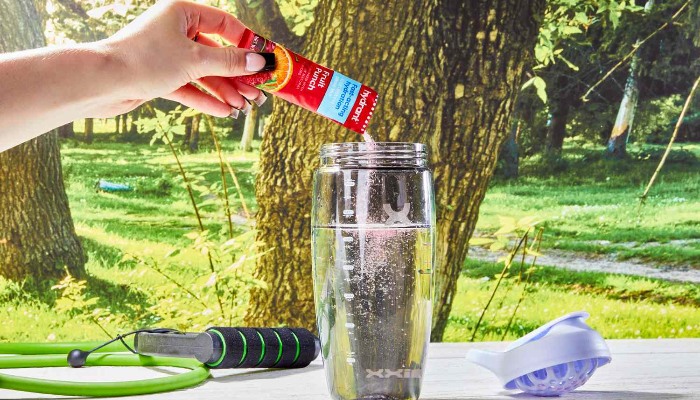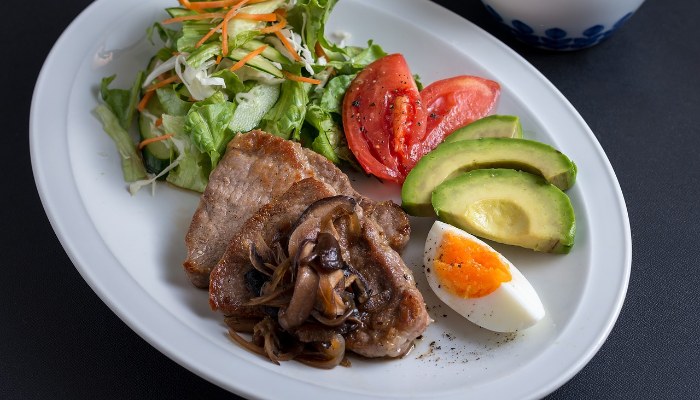When most people start the keto diet, they expect weight loss, more energy, and better focus. And while many experience these benefits, others run into something less pleasant early on: fatigue, headaches, muscle cramps, dizziness, or irritability. These symptoms are often blamed on the so-called “keto flu.” But in many cases, there’s a simpler explanation: electrolyte imbalance.
Electrolytes play a crucial role in how your body functions—especially on a ketogenic diet. When your carb intake drops and insulin levels fall, your body flushes out water and minerals at a faster rate than normal. Without replacing these key nutrients, your body can’t operate optimally.
In this article, we’ll explore what electrolytes are, why they’re especially important on keto, the symptoms of deficiency, and exactly how to keep your electrolyte levels balanced so you feel and perform your best.
What Are Electrolytes?
Electrolytes are minerals in your body that carry an electric charge. They’re essential for many vital functions, including:
- Regulating fluid balance
- Controlling nerve and muscle function
- Supporting heart rhythm
- Aiding nutrient absorption
- Balancing pH levels
The primary electrolytes include:
- Sodium
- Potassium
- Magnesium
- Calcium
- Chloride
- Phosphate
On keto, the three most important electrolytes to monitor are sodium, potassium, and magnesium—because these are the ones most likely to become depleted.
Why Electrolytes Are Especially Important on Keto
When you follow a standard diet high in carbohydrates, your body holds onto more water. This is because every gram of glycogen (stored carbohydrate) binds to about 3–4 grams of water. But when you cut carbs, glycogen stores are depleted—and your body flushes out that water, along with electrolytes.
Additionally, as insulin levels drop (a natural result of keto), the kidneys excrete more sodium and water. This diuretic effect can lead to dehydration and electrolyte loss if not properly addressed.
That’s why so many people experience symptoms like headaches, fatigue, brain fog, and muscle cramps in the first week or two of keto. It’s not the diet itself—it’s missing electrolytes.
Signs You May Be Deficient in Electrolytes
Here are some common signs of an electrolyte imbalance—especially during the early stages of keto:
1. Headaches
As your brain adjusts to a lower level of glucose and hydration drops, you may experience persistent headaches.
2. Muscle Cramps
Sudden cramps in your calves or feet are a sign of low magnesium or potassium—especially during or after exercise.
3. Fatigue and Weakness
Feeling wiped out or lightheaded may mean you’re not getting enough sodium or potassium.
4. Heart Palpitations
Low magnesium and potassium levels can affect your heart rhythm and create the sensation of a racing or fluttering heartbeat.
5. Dizziness or Lightheadedness
Often caused by low blood pressure from insufficient sodium, especially when you stand up quickly.
6. Constipation
Low magnesium can slow down digestion and lead to irregularity.
If you’re experiencing any of these symptoms on keto, don’t rush to quit—replenish your electrolytes first.
The Big Three: Sodium, Potassium, and Magnesium
Let’s take a closer look at each of the three critical electrolytes and how to get enough of them on keto.
1. Sodium
Why It Matters:
Sodium regulates fluid balance, blood pressure, and nerve function. When insulin levels drop, your kidneys excrete more sodium, increasing your need for it on keto.
Recommended intake on keto:
4,000–7,000 mg per day (higher than typical low-sodium guidelines)
How to Get More Sodium:
- Add Himalayan pink salt or sea salt to meals
- Drink bone broth (rich in sodium and collagen)
- Use salted butter on your veggies or meats
- Make homemade electrolyte drinks with salt, lemon, and water
- Consider salt capsules if you’re training hard or sweating a lot
Pro tip: Don’t fear salt on keto—especially if you’re not eating processed foods. Low sodium can lead to fatigue, cravings, and brain fog.
2. Potassium
Why It Matters:
Potassium supports muscle contractions, heart health, and nerve transmission. It also works with sodium to maintain proper hydration and blood pressure.
Recommended intake on keto:
2,000–4,700 mg per day (the upper end is ideal)
Potassium-rich keto foods:
- Avocados (1 avocado = ~700 mg)
- Spinach and leafy greens
- Mushrooms
- Salmon
- Pork
- Brussels sprouts
- Zucchini
- Pumpkin seeds
Avoid: Potassium supplements in high doses unless supervised by a doctor—they can affect heart rhythm. Instead, get potassium from food sources or use potassium chloride-based salt substitutes (e.g., Lite Salt).
3. Magnesium
Why It Matters:
Magnesium plays a role in over 300 enzymatic reactions, including muscle relaxation, energy production, and sleep regulation.
Recommended intake on keto:
300–500 mg per day
Magnesium-rich keto foods:
- Pumpkin seeds
- Almonds
- Dark chocolate (85%+ cacao)
- Spinach
- Mackerel and other fatty fish
- Avocados
- Swiss chard
Supplement options:
If you struggle to get enough magnesium through food, consider a high-quality magnesium glycinate, malate, or citrate supplement.
When Are Electrolytes Most Critical?
Electrolytes are always important, but there are times when your body demands more:
- During the first 1–2 weeks of keto (as your body adapts)
- When you’re exercising, especially in hot weather
- During intermittent fasting (when food-based electrolytes are lower)
- When you’re feeling tired, weak, or dizzy
- When consuming alcohol, which further depletes minerals
Being proactive with electrolytes can make all the difference in how you feel—and how sustainable keto becomes.
How to Make a Simple Keto Electrolyte Drink
You don’t need fancy supplements to stay balanced. Try this homemade recipe:
DIY Electrolyte Drink:
- 1–2 cups water (still or sparkling)
- 1/4 tsp Himalayan pink salt (sodium)
- 1/4 tsp Lite Salt (potassium)
- 1–2 tbsp lemon or lime juice
- Optional: 1 tsp apple cider vinegar
- Optional: 1–2 drops stevia for taste
Stir or shake and sip throughout the day.
Electrolyte Supplements: Do You Need Them?
While food sources are ideal, some people may benefit from supplements—especially if you sweat a lot, exercise frequently, or do prolonged fasting.
Look for keto-specific electrolyte blends that contain:
- 500–1,000 mg sodium
- 200–400 mg potassium
- 100–300 mg magnesium
Avoid products with added sugar, artificial sweeteners, or fillers.
Some good options include:
- LMNT
- Keto Chow Electrolyte Drops
- Redmond Re-Lyte
- Ultima Replenisher (zero sugar, flavored)
Final Thoughts
Electrolyte balance is one of the most overlooked—yet vital—components of success on the keto diet. Without enough sodium, potassium, and magnesium, even the most perfectly planned keto meal won’t keep you feeling your best.
By staying on top of your electrolyte intake, you can avoid the keto flu, maintain steady energy levels, support workouts, and feel great throughout your journey.
Key Takeaways:
- Electrolytes regulate hydration, energy, and muscle function—especially important on keto.
- Sodium, potassium, and magnesium are the top three to monitor.
- You lose electrolytes faster on keto due to reduced insulin and glycogen.
- Replenish electrolytes through food, homemade drinks, or quality supplements.
- Staying hydrated with electrolytes (not just water) is key to long-term success.
Fuel your keto journey the smart way—by powering your body with the minerals it truly needs.



